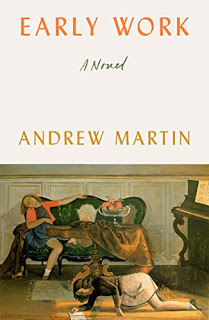
Let’s begin with this book’s beginning:
Like most people trying to get by in something like the regular current of American life, I don’t act like a total asshole to most people I meet, and am generally regarded as pretty nice, mainly because I leave myself vulnerable to hearing out other people’s crises and complaints for longer, on average, than would be merely polite. And the fact is, I do tend to like people in practice, even though I’ve built an airtight case against them in principle. It’s a natural response, I guess, to being raised by relatively kind parents who taught me to be polite and decent and to rely on the company and help of others, but to also consider myself smarter and, on some fundamental level, more deserving of complete fulfillment than anyone in the world besides maybe my sisters.
I mean, how can you not love it already? What a fabulous pair of sentences, packed with interesting ideas, and written in a contemporary voice that remarkably doesn’t seem pretentious. This sets the tone for what is a wonderful book about cheating on your girlfriend. I particularly enjoyed its fun dialogue:
“What do you do, Gil?” I said.
“I work for ThinkBright?” he said “We do design and tech consulting?”
“The Lord’s work,” I said.
I urgently need an opportunity to say this in normal conversation. People are always telling they are bankers and such like. I also liked this:
“Okay, but do you like living in Virginia?” she said pointedly. “Is living in Virginia lowering or heightening your sense of existential dread?”
“My basic status is medium-happy,” I said. “We’ll have to move when Julia gets the next thing, so it’s not useful to analyze it too much. Do I need to have a position? I’m not running for office. I’m not trying to be the president of selfhood.”
And this:
“We’re adults,” I said, the universal marker of childish behaviour. “This doesn’t have to be a big deal.”
It wasn’t just the zippy dialogue I enjoyed (though that’s enough). It was also a thoughtful story about about choosing between two good options, as even while cheating on his girlfriend he continues to really like her:
I still loved Julia. That wasn’t really in question. I had plenty of love. It was, I was realizing, a callous kind of love. That seemed to be all I had to give. Anyone I was with would realize that eventually, I thought, with my feet in the water, so really the goal was to create the illusions of depth for as long as possible. Not for the sex, no. For the company. Other people were interesting, and the more privileged time you had with them the less bored you would be. They would teach you how to live, or at least entertain you while you failed to learn. And it wasn’t entirely selfish, because, to other people, you were someone else, too, someone interesting, even if you knew you weren’t.
And it wasn’t just about romance, either. Both of the women he is involved with are writers, as is he; and one of the more interesting parts of the novel are his efforts to write, at which he is failing. He procrastinates, he deletes, he makes excuses, while both the women who are waiting on him continue to work: they write, and he doesn’t. I found it a striking part of the story; you’d think he has all the power, because frankly he is the one doing the choosing, but somehow he doesn’t; he’s winning in terms of other people, but somehow losing in terms of himself.
